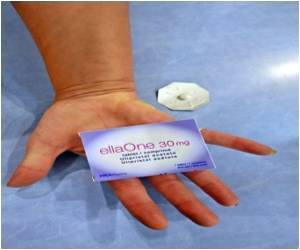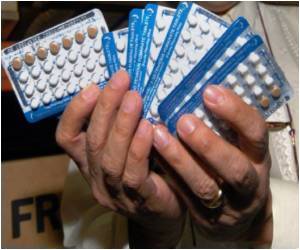An experimental 'morning after' pill could free millions of women from the misery of uterine fibroids, new study suggests.

UPA belongs to a relatively new class of drug, the selective progesterone receptor modulators or SPRMs. It is currently used for emergency contraception, and acts by blocking the progesterone receptor and hence ovulation (release of the egg).
Recent research has shown that progesterone also plays a role in the development of uterine fibroids.
"Both the fibroids and the surgical interventions commonly used to treat them can cause significant fertility problems and we wanted to see whether fibroids could shrink and surgery could be avoided by using an SPRM," Dr. Alicia Armstrong said.
In the trials, women aged from 25-50 years with symptomatic uterine fibroids were randomised to receive UPA or placebo once a day for three menstrual cycles.
The researchers found that, out of the 57 patients who it was possible to evaluate for efficacy, 18 received placebo, 20 10mg of UPA per day and 19 20mg per day. Those taking UPA had reduced total fibroid volume, with those taking the higher dose doing better - 14 (70 percent) in the 10mg group and 16 (84 percent) in the 20 mg group. The patients on placebo did significantly less well with only six (33 percent) showing reduction in fibroid volume.
Estradiol levels remained adequate for bone health during treatment in 77 percent, 100 percent and 95 percent of patients in the UPA 10mg and 20mg and placebo groups, respectively, indicating that the action of the ovaries was not impaired, and neither were there any serious side effects
The study has been presented at the 26th annual meeting of the European Society of Human Reproduction and Embryology in Rome.
Source-ANI
 MEDINDIA
MEDINDIA



 Email
Email







